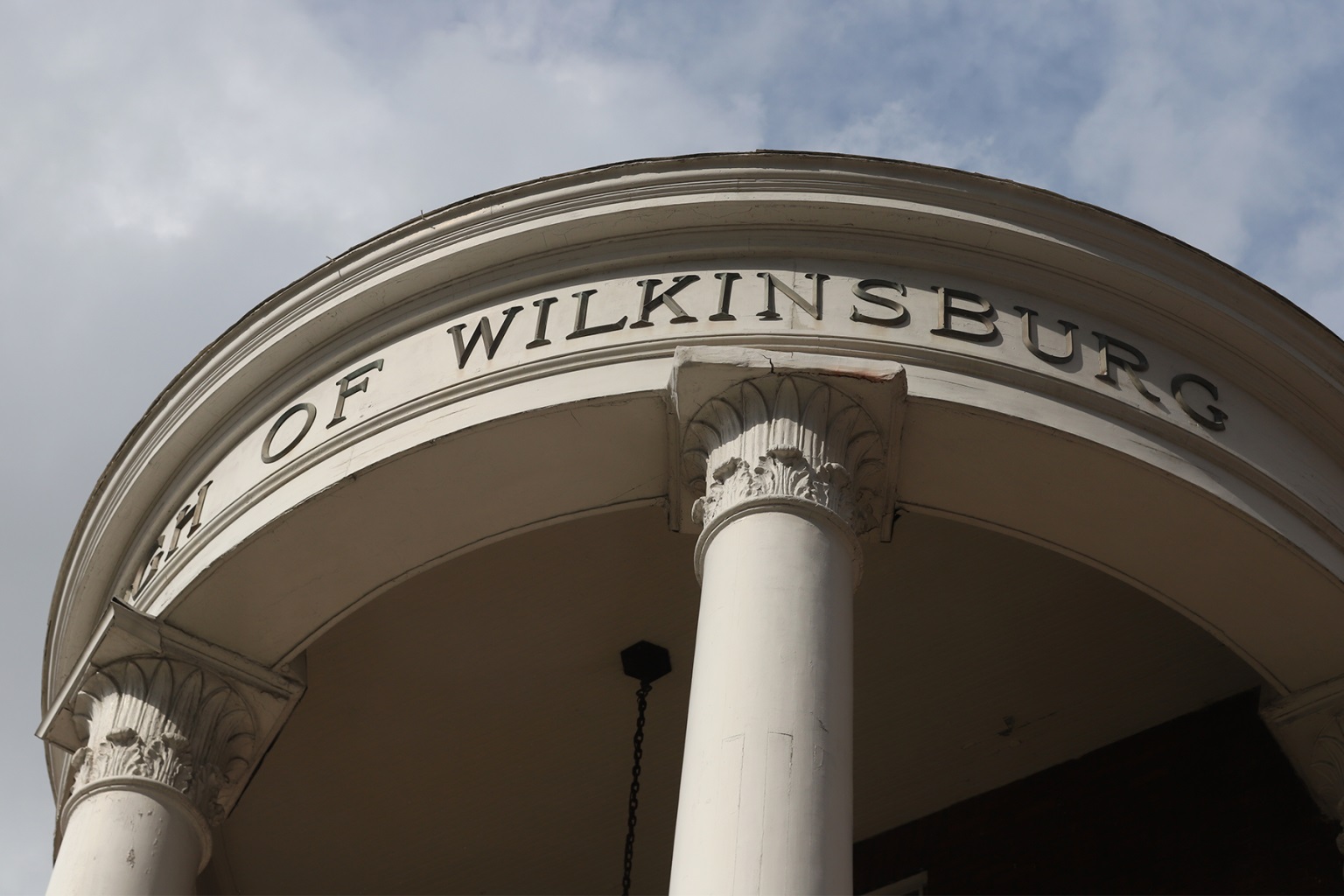The Wilkinsburg Municipal Building. (Photo by Ryan Loew/PublicSource)
Barring an appeal, pro-annexation group will need to pursue a referendum in both Pittsburgh and Wilkinsburg to move forward.
by Charlie Wolfson, PublicSource
An Allegheny County judge dealt a significant blow to those seeking to annex Wilkinsburg into Pittsburgh, ruling that a consolidation procedure dating to 1903 is invalid. The decision stops an annexation petition in its tracks and boosts the borough’s odds of remaining independent in the long term.
Tracey Evans, who leads the group that filed the petition and has pushed for annexation publicly for more than 18 months, did not respond to inquiries about whether she would appeal the ruling. Her attorney, Cliff Levine, declined to comment. Evans, executive director of the Wilkinsburg Community Development Corp., said at an Oct. 18 hearing that she would consider an appeal if the judge halted the petition.
The old annexation law required petitioners to gain majority support on Pittsburgh’s city council and then get a majority of votes in a Wikinsburg ballot referendum. The judge ruled that the law outlining this process, passed in 1903, was actually repealed when Pennsylvania amended its constitution in 1968.
Common Pleas Judge Joseph James wrote that Article IX, Section 8 of the constitution directed the legislature to set procedures for consolidations and mergers within two years of the 1970 ratification. The legislature failed to do that, which James wrote means that any annexation must use the only procedure set forth by the constitution: a ballot initiative in each municipality.
(The legislature later set up different rules for consolidation with a 1994 law that specifically excludes Pittsburgh from its jurisdiction, so the constitutional path remains the only option relevant to Pittsburgh and Wilkinsburg.)
Under James’ ruling, people in favor of consolidating Wilkinsburg into Pittsburgh would need to get a majority of voters to support a ballot question in both Pittsburgh and Wilkinsburg, rather than only in Wilkinsburg. And unlike in the previous process, the process would not need Pittsburgh City Council’s blessing.

